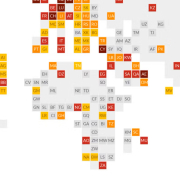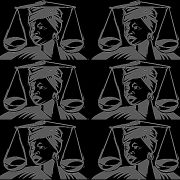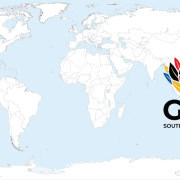|
Getting your Trinity Audio player ready...
|
Image: AAACOA
South Africa currently chairs the Botswana-based Association of Heads of Anti-Corruption Agencies in Commonwealth Africa (AAACOA).
The country, in the person of Special Investigating Unit (SIU) head Adv. Andy Mothibi, recently assumed the chairperson’s seat from Ghana and will keep it throughout the 2025-2026 term. The handover took place during the closing session of the 15th AAACOA regional conference and the concurrent annual general meeting, held in Cape Town from 5-9 May 2025. The event brought together heads of law enforcement agencies (LEAs) in the 21 AAACOA member nations, who committed to collectively developing effective, actionable strategies under the theme Enhancing Inclusive Participation of State and Non-State Actors to Prevent and Combat Corruption.
The SIU, which is also the chair of the G20 Anti-Corruption Working Group, represented South Africa at the event. The AAACOA describes itself as a organisation that “partners with the Commonwealth Secretariat and anti-corruption agencies in uniting Commonwealth Africa in the fight against corruption”, with the mission of deepening engagement and co-operation of Commonwealth Africa countries in the fight against corruption.
The AAACOA’s executive committee comprises Seychelles, Zambia, Ghana, Botswana, Cameroon, and Tanzania.
SIU leading anti-corruption efforts
“Corruption undermines trust in institutions, in governments, in the rule of law, and in democracy itself,” said President Cyril Ramaphosa in a speech that was delivered on his behalf by Justice Minister Mmamoloko Kubayi on 8 May. “Every year trillions of dollars are lost to corruption, bribery, embezzlement, and illicit financial flows. This is money that could be used to fund social development. Corruption holds back progress and dashes opportunity.”
In recent years the country has struggled to hold back the tide of corruption, but the SIU can easily be singled out as one of the better performing LEAs. In the 2023/2024 financial year alone, the organisation recovered over R2.2-billion in cash and assets and prevented a loss of R2.3-billion to the state, with a potential R1.6-billion of potential cash and assets to be recovered. In addition, the SIU enrolled 43 civil cases at the Special Tribunal, setting aside contracts worth R2.1-billion, and referring matters worth R4.8 billion for civil proceedings. It also made 583 criminal referrals to the relevant prosecuting authorities.
The prevention of the steady loss of state funds to corruption and other criminal pursuits is vital to growing the economy, creating jobs, and providing the basic services that people are entitled to under the country’s Constitution.
“South Africa’s leadership comes at a critical moment as countries across the continent commit to leveraging innovation and enhancing institutional integrity and measures,” said the SIU in a statement. “The SIU will spearhead efforts to promote inter-agency collaboration, integrate technology such as Artificial Intelligence (AI) into anti-corruption strategies, and uphold evidence-based enforcement throughout Commonwealth Africa.”
The conference presented a further opportunity for African states to unite in the fight against corruption, said Mothibi. “It allows us to share resources, exchange experiences, and build collective strength. More importantly, as technology evolves, so do the methods used to facilitate illicit financial flows across borders. We must come together to nip this in the bud and beat criminals at their game.”
AAACOA members are guided by the following desired outcomes:
- Innovative strategies – Sharing cutting-edge tools and frameworks to detect, investigate, and prosecute corruption.
- SDG 16 acceleration – Aligning anti-corruption measures with Sustainable Development Goal 16 to promote transparency and accountability.
- Public-private collaboration – Enhancing partnerships between governments, civil society, and businesses to close loopholes in governance systems.
- Capacity building – Equipping anti-corruption agencies with best practices from global experts and peer institutions.
- Regional co-operation – Strengthening cross-border collaboration through memoranda of understanding and joint initiatives.
Areas of consensus include, among others:
- Integrating gender-responsive strategies to address the specific impacts of corruption on women and marginalised groups.
- Reinforcing the legal and institutional independence of anti-corruption agencies.
- Advancing cross-border co-operation by removing jurisdictional and procedural barriers.
- Establishing sound anti-corruption frameworks within the defence sector.
- Tackling illicit financial flows and enhancing asset recovery efforts.
- Supporting the establishment of an International Anti-Corruption Court.







